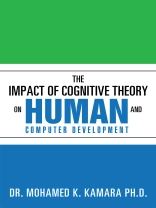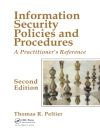This book explains the impacts of cognitive theory on human development and scientific innovations. The book investigates the invention of computer Random Access Memory (RAM) and the Central Processing Unit (CPU) based on human intellectual development and the correlation of these devices to human organs such as the Brain and Heart. To achieve this, several relative scenarios were drawn and investigated.
लेखक के बारे में
Dr. Kamara is a full-time computer and information sciences professor at American College of Commerce and Technology since 2010 and an adjunct professor at Stratford University graduate school of computer and information sciences since 2006. He earned his BSc degree in telecommunication from the University of Stavanger in Norway, MSc degree in Computer Information Sciences from Strayer University, and completed his Ph D course work in IT Security and Assurance at George Mason University, and later moved to Walden University where he did his research courses and wrote his dissertation on Wi-Fi/Internet Usage in Sierra Leone to earn his Ph D degree in 2013. His records of teaching skills in the classroom can be found on http://www.ratemyprofessors.com.
Dr. Kamara is a full-time computer and information sciences professor at American College of Commerce and Technology since 2010 and an adjunct professor at Stratford University graduate school of computer and information sciences since 2006. He earned his BSc degree in telecommunication from the University of Stavanger in Norway, MSc degree in Computer Information Sciences from Strayer University, and completed his Ph D course work in IT Security and Assurance at George Mason University, and later moved to Walden University where he did his research courses and wrote his dissertation on Wi-Fi/Internet Usage in Sierra Leone to earn his Ph D degree in 2013. His records of teaching skills in the classroom can be found on http://www.ratemyprofessors.com.
Dr. Kamara has many years of hands-on experience in information technology industry, ranging from technical delivery to project management. His uncanny ability in the IT field, including the use of active directory to create and monitor user login accounts, network resources, secure networks using pointsec, access control techniques, intrusion detection systems and deeply involved in maintenance, troubleshooting, installations, and configuration of clients, servers, print queues, researching, and analyzing new software modules and hardware devices.
Dr. Kamara served in multiple capacities with IT Management, Signal Corporation and BAE Systems, started up as IT coordinator for technical delivery with multiple concurrent and divergent roles. His exposure to all aspects of IT organizations, as well as his participation in transitioning several companies from dedicated service organizations to dedicated software organization, significantly expanded his technical knowledge in computer science and IT industries. Professor Kamara’s IT career began to flourish with Signal Corporation at the National Archive of Records and Administration where he worked as a support technician and operations planning group and progressed to the role of senior planning analyst accountable for all technical storages and IT security infrastructures.












